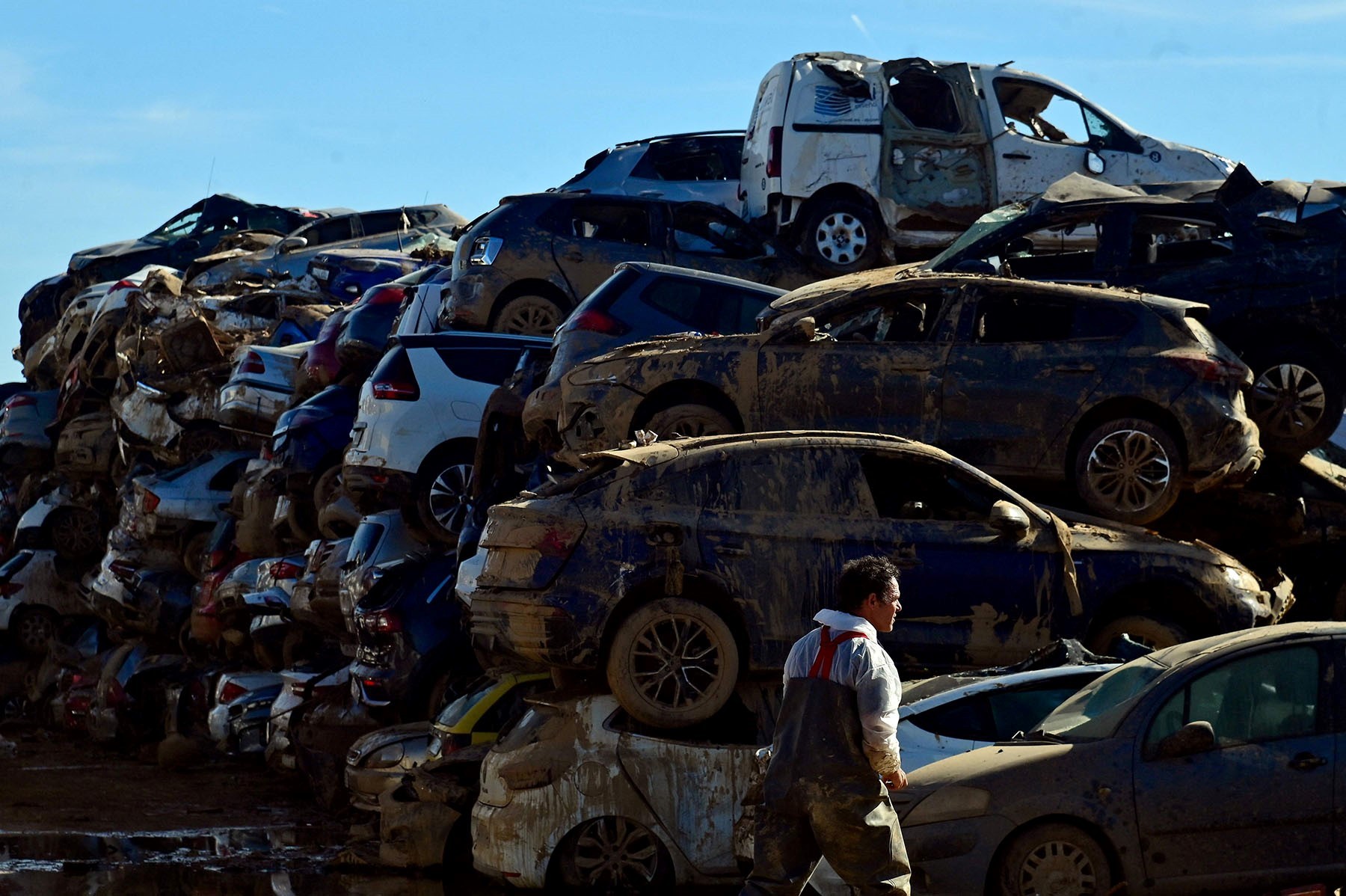Spain's Prime Minister Announces New 3.8 billion euros Flood Aid Amid Calls for Accountability
Experts have pointed to climate change as a key factor behind the increased frequency and intensity of Mediterranean storms affecting Spain.

Spain’s Prime Minister Pedro Sanchez announced an additional €3.8 billion in flood relief on Monday as the country grapples with unprecedented destruction and loss of life.
The floods, Spain's deadliest in a generation, have taken 222 lives and left tens of thousands struggling to rebuild. This second wave of support follows last week's €10.6 billion package, underscoring the severity of the disaster that has struck the nation, particularly the Valencia region.
Unprecedented Storms, Widespread Devastation
An exceptional Mediterranean storm two weeks ago triggered torrential rainfall, overwhelming towns and cities in eastern Spain. Valencia, one of Spain's wealthiest regions, bore the brunt of the storm's impact, with communities submerged in muddy torrents.
Roads, bridges, railways, and farmlands were obliterated. Entire neighborhoods have been left unrecognizable, with cars stacked like matchsticks and buildings gutted by floodwaters. The overall financial toll is expected to soar to tens of billions of euros, and estimates could climb further as recovery progresses.
Beyond the immediate aid, Spain’s government faces a complex and expensive recovery effort to rebuild infrastructure, support economic stability, and improve resilience against future climate events.
Expanding Relief: What the New Package Covers
The latest €3.8 billion package aims to provide streamlined compensation for residents who have lost homes and belongings, as well as extended financial aid to a broader group of flood-affected people.
This comes in addition to last week’s package, which provided support for small- and medium-sized businesses, independent workers, and households that suffered casualties or property damage.
Additional relief for farmers, totaling €200 million, is part of the latest aid. With livelihoods destroyed across vast areas of farmland, these funds are essential to help farmers re-establish operations.
Tax breaks, a three-month deferral on mortgage and loan repayments, and central government funding for cleanup and repair efforts have also been included to ease the burden on flood survivors and municipal budgets.
“This is an intervention on a scale similar to what we undertook during the Covid-19 crisis,” Sanchez said, pledging continued government support as the nation recovers from the disaster.
“The government will be there with all necessary resources for as long as it takes.” The mobilization has included thousands of military personnel, police officers, civil guards, and emergency services to aid in search, rescue, and repair operations.
Political Backlash and Public Outrage
The flood has brought a groundswell of public anger against both regional and national authorities. Over the weekend, approximately 130,000 people marched in Valencia’s capital, demanding accountability and clearer answers about the crisis management.
Protesters are calling for Sanchez and Valencia’s regional leader Carlos Mazon to step down. Demonstrators say that inadequate preparation and lack of clear, coordinated response measures aggravated the disaster’s impact.
Questions are now surfacing about government preparedness, early warning systems, and communication during the crisis.
Sanchez has so far postponed any in-depth political debate on the authorities' handling of the floods, insisting that immediate recovery efforts take precedence over assigning blame. “There will be time for political debate, but only after we’ve made progress in recovery,” Sanchez told reporters.
Regional leader Mazon has conceded that “errors may have been committed” in responding to the storm but did not elaborate. “Everyone will be obliged to review these issues in the coming weeks,” he added, hinting at a potential investigation after the immediate crisis subsides.
Climate Change: A Growing Threat
Experts have pointed to climate change as a key factor behind the increased frequency and intensity of Mediterranean storms affecting Spain. Although heavy storms are common during this time of year, scientists warn that climate change is making such events more severe, with greater rainfall, stronger winds, and prolonged storm durations.
Spain’s meteorological agency, AEMET, has forecast additional heavy rain for the Valencia region in the coming days, raising concerns about further damage to already weakened infrastructure.
The government has highlighted climate change adaptation as a long-term priority, but the current disaster has underscored the need to speed up protective measures.
A National Reckoning
As Spain braces for further storms, the recovery and political aftermath of the recent disaster have just begun. Beyond reconstruction, Spain is facing an urgent need to address climate resilience and improve emergency preparedness. Citizens are demanding answers, and authorities face a reckoning that could reshape Spain’s approach to future climate crises.
Spain's government will continue to focus on immediate relief efforts while acknowledging the need for a comprehensive review of disaster preparedness policies.



















तपाईको प्रतिक्रिया दिनुहोस